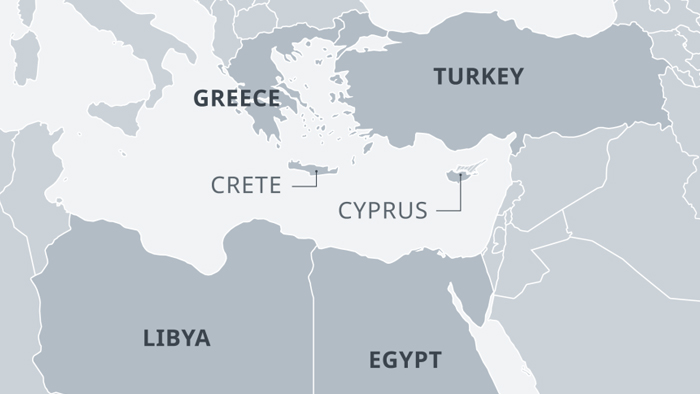(4 minutes read)
Greek government spokesman Giannis Oikonomou said a day after Turkey signed a preliminary agreement with Libya for oil and natural gas exploration on Libyan soil and in the country’s maritime exclusive economic zone (EEZ). Greece said that the agreement is illegal and a fabrication of reality ignoring the international context
Greek government spokesman Giannis Oikonomou said a day after Turkey signed a preliminary agreement with Libya for oil and natural gas exploration on Libyan soil and in the country’s maritime exclusive economic zone (EEZ). Greece said that the agreement is illegal and fabrication of reality ignoring the international context.
The Greek spokesperson said that Turkey was fabricating and distorting facts to serve its end. Greece would react as it has a right under international law, which defines Libya’s EEZ as that agreed upon by Turkey and the Tripoli-based government in a highly contested memorandum signed in November 2019. He said that was denounced by Greece and Egypt, the two countries standing between Libya and Turkey. Greece has an EEZ agreement with Egypt. What Turkey is trying to do violates the sovereign rights of other countries too and it will certainly not be approved by the international community, he added.
Asked whether Greek Prime Minister Kyriakos Mitsotakis would meet with Turkish President Recep Tayyip Erdogan on the sidelines of an informal European Union summit in Prague on coming Thursday, Oikonomou said that Athens would consider” the possibility if Ankara requested. Relations between Greece and Turkey are at their worst in recent years, with Turkey issuing thinly veiled threats to invade Greece’s Aegean Sea islands. Undersea gas and oil exploration rights are a key part of the dispute. The European Union has aligned with Greece in its long-running dispute with Turkey, declaring that the latter’s agreement with Libya is against the Law of the Sea and infringes on third states’ rights.
The deals, signed by Turkey’s Foreign Minister Mevlut Çavusoglu with the Tripoli-based Libyan government recently, allow for oil and gas exploration in Libya’s Mediterranean waters, three years after a maritime border deal that angered European nations.
The deal sparked wide controversy and angered Libyan and international actors who deemed the agreement as illegal. Libya’s parliament quickly rejected the deal, declaring that the Tripoli-based transitional government, led by Abdul Hamid Dbeibeh, is not authorized to broker long-term agreements with international parties since its mandate had expired. Parliament Speaker Aguila Saleh called the deal “illegal and unacceptable”, while the Libyan rival government of former interior minister Fathi Bashagha threatened to use the courts to annul it.
Read Also:
https://trendsnafrica.com/turkish-company-gama-to-implement-power-generation-plant-in-libya/
https://trendsnafrica.com/urban-expo-in-istanbul-to-connect-libya-and-turkey-in-october-first-week/
Similarly, Greece, which has had a long-running dispute with Turkey over maritime territories, came out against the Libya-Turkey deal. Greek Foreign Minister Nikos Dendias said he had spoken to his counterpart in Egypt, Sameh Shoukry, and that “both challenged the legitimacy of the deal. Dendias said he would visit Cairo for “consultations” on the issue.





